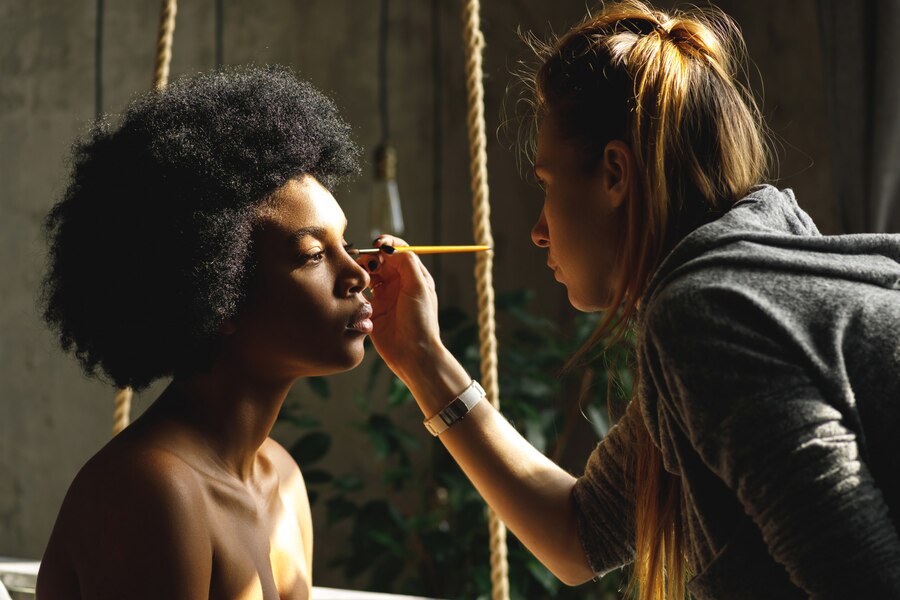Introduction
We are living in a world of instant gratification and constant reaction. Be it a social media, work email, or any personal issue that you might have, the first thing that comes to your head is to respond immediately. But if we would first slow down and observe before a reactor? The motto is “Learn to sit back and observe.Not everything -off. A reminder from Tymoff- “Not everything needs your reaction. It is this guidance that spurs forward a reflective and reasoned approach to life.
We will then use that understanding to gain better insights to make healthier decisions, struggle less with mental issues, and enjoy more balanced relationships.
Recognizing the Impulse to Act
Instant Gratification and Its Mirror in Society Today
This immediacy culture extends to our communication and how quickly we respond. We rush to offer our opinions, comments and reactions but rarely stop to think things through.
Why We Feel the Need to Respond Quickly
There’s a mental element to this, too. The brain rewards short reactions with a dopamine rush, making it feel good to respond immediately.
This technique enables one to remain calm and deliberate instead of reacting impulsively out of anger, irritation, or fear.
Reasons Why Observation Is Superior to Reaction

Enhanced Cognitive Acuity
By waiting before responding, we give our thoughts room to clear. Thanks to this mental clarity, we can examine circumstances with more objectivity, free from the influence of our immediate emotions. This technique may help alleviate feelings of being overwhelmed and confused.
Improving Connections with Reflective Dialogue
Observation facilitates relationships as well. Sitting back and watching helps alleviate anxiety and tension because it gives us control over our reactions instead of making us feel pushed.
Methods for Developing Good Observation Skills
Methods to Maintain Composure before Responding
A simple technique to slow down before responding is to count to five. Taking a few slow, deep breaths might help you relax and think things through before reacting.
Activities for Mindfulness-Based Presence
Practice awareness by engaging in physical activities such as meditation or body scanning. This might help train your mind to remain positive. Keeping one’s cool under pressure makes it easier to assess events objectively.
The Use of a Journal for Self-Reflection
Keeping a journal is another excellent way to develop critical thinking skills. Writing down events before responding may help you better manage your emotions and assess them.
The Immediacy of Response Cultivated by Social Media
What We Call “Comments and Likes” Culture
Likes, stocks, and comments are the lifeblood of social networking networks. Customers are prompted to respond quickly, often without giving their answers any thought. One way to break the habit of reacting hastily online is to practice mindful scrolling.
Improving My Skill in Mindful Scrolling
Take a moment to peruse mindfully rather than responding to every post or comment. Before you entice, read, analyze, and think. By doing so, you lessen the load of social media and your mental health improves generally.
Putting Tymoff’s Advice into Practice Every Day
Dealing with Challenging Dialogues with Grace
Emotions tend to run high in challenging talks. Sitting and staring helps us focus more intently, see things from the other person’s perspective, and respond rationally and clearly.
Effects on Development and Self-Sufficiency
Consistently striving for a statement may increase your emotional maturity. You will begin to respond with consideration instead of impulsively, leading to personal growth and stronger relationships.
Combating FOMO: The Fear of Missing Out
The Reasons We Can’t Help But React to Everything
Daily, the fear of missing out (FOMO) prompts action. This change reduces anxiety and increases self-confidence.
The Thin Line between Observing and Avoiding
Sitting Back Turns Into Avoidance
It should be emphasized that sitting down and staring does not mean completely refraining from activity. Careful criticism and avoidance are two sides of the same coin. The key to personal boom knows when to act and when to wait.
Being Able to Tell When to Act and When to Hold Off
Instead of using observation as a crutch to get out of sticky situations, use it to make educated judgments. After you’ve explored and considered, decide when you’re ready.
Emotional Intelligence and the Power of Observation
Emotional and Situational Reading Made Easier
Improving your emotional intelligence is as simple as looking instead of reacting. You become more adept at reading situations and understanding other people’s feelings, which allows you to have more fruitful conversations and solve problems more effectively.
Strengthening Compassion and Comprehending
Observation can help you put yourself in other people’s shoes. You can improve your connections and interactions by trying to understand other people’s emotions and points of view.
The Value of Being Quiet and Patient
An Observational Example from Nature
When it comes to learning by seeing, nature is an excellent teacher. Ecosystems, flowers, and animals all radiate a calm, steady energy. Nature provides us invaluable lessons in being alert at the right moment and reacting with consideration.
Implementing These Principles in Your Personal Life
By incorporating moments of calm into your daily life, you may get insight into nature’s wisdom.
This technique enables one to remain calm and deliberate instead of reacting impulsively out of anger, irritation, or fear.
Reasons Why Observation Is Superior to Reaction
Enhanced Cognitive Acuity
By waiting before responding, we give our thoughts room to clear. Thanks to this mental clarity, we can examine circumstances with more objectivity, free from the influence of our immediate emotions. This technique may help alleviate feelings of being overwhelmed and confused.
Improving Connections with Reflective Dialogue
Observation facilitates relationships as well. Sitting back and watching helps alleviate anxiety and tension because it gives us control over our reactions instead of making us feel pushed.
Methods for Developing Good Observation Skills
Methods to Maintain Composure Before Responding
A simple technique to slow down before responding is to count to five. Taking a few slow, deep breaths might help you relax and think things through before reacting.
Activities for Mindfulness-Based Presence
Practice awareness by engaging in physical activities such as meditation or body scanning. This might help train your mind to remain positive. Keeping one’s cool under pressure makes it easier to assess events objectively.
The Use of a Journal for Self-Reflection
Keeping a journal is another excellent way to develop critical thinking skills. Writing down events before responding may help you better manage your emotions and assess them.
The Immediacy of Response Cultivated by Social Media
What We Call “Comments and Likes” Culture
Likes, stocks, and comments are the lifeblood of social networking networks. Customers are prompted to respond quickly, often without giving their answers any thought. One way to break the habit of reacting hastily online is to practice mindful scrolling.
Improving My Skill in Mindful Scrolling
Take a moment to peruse mindfully rather than responding to every post or comment. Before you entice, read, analyze, and think. By doing so, you lessen the load of social media and your mental health improves generally.
Putting Tymoff’s Advice into Practice Every Day
Dealing with Challenging Dialogues with Grace
Emotions tend to run high in challenging talks. Sitting and staring helps us focus more intently, see things from the other person’s perspective, and respond rationally and clearly.
Effects on Development and Self-Sufficiency
Consistently striving for a statement may increase your emotional maturity. You will begin to respond with consideration instead of impulsively, leading to personal growth and stronger relationships.
Combating FOMO: The Fear of Missing Out
The Reasons We Can’t Help But React to Everything
Daily, the fear of missing out (FOMO) prompts action. This change reduces anxiety and increases self-confidence.
The Thin Line Between Observing and Avoiding
Sitting Back Turns Into Avoidance
It should be emphasized that sitting down and staring does not mean completely refraining from activity. Careful criticism and avoidance are two sides of the same coin. The key to personal boom is knowing when to act and when to wait.
Being Able to Tell When to Act and When to Hold Off
Instead of using observation as a crutch to get out of sticky situations, use it to make educated judgments. After you’ve explored and considered, decide when you’re ready.
Emotional Intelligence and the Power of Observation
Emotional and Situational Reading Made Easier
Improving your emotional intelligence is as simple as looking instead of reacting. You become more adept at reading situations and understanding other people’s feelings, which allows you to have more fruitful conversations and solve problems more effectively.
Strengthening Compassion and Comprehending
Observation can help you put yourself in other people’s shoes. You can improve your connections and interactions by trying to understand other people’s emotions and points of view.
Nature as a Teacher: The Value of Being Quiet and Patient
An Observational Example from Nature
When it comes to learning by seeing, nature is an excellent teacher. Ecosystems, flowers, and animals all radiate a calm, steady energy. Nature provides us invaluable lessons in being alert at the right moment and reacting with consideration.
Implementing These Principles in Your Personal Life
By incorporating moments of calm into your daily life, you may get insight into nature’s wisdom.
Take time to pause, replicate, and examine it before taking action, as the natural world does.
Mindful Observation for Personal Growth
How Observation Can Foster Self-Awareness
Observation enables you to become more self-aware. By recording your thoughts, emotions, and reactions, you gain deeper insights into your behaviour and can modify OK over the years.
Transforming Reactions into Reflections
Instead of reacting impulsively, turn your reactions into reflections. Ask yourself why you need to respond and whether a response is necessary. This habit can result in extra self-consciousness and personal growth.
How Tymoff’s Wisdom Can Transform Relationships
Improving Communication through Active Listening
When you recognize and take responsibility for looking at instead of reacting, you become a better listener. This improves communication in all areas of life, from friendships to romantic relationships, by fostering knowledge and reducing battles.
Letting Go of the Need to Be Right
Sitting back and watching allows the desire to be right to move continually. Instead of reacting defensively, you can reply with empathy, enhancing your relationships and creating a more peaceful dynamic.
The Long-Term Impact of Choosing Observation
Greater Resilience and Emotional Stability
Over time, deciding on a statement over a response strengthens your emotional resilience. You become less tormented by external pressures and more solid in your feelings, leading to a calmer, more centered life.
The Potential for Deeper, More Meaningful Connections
By practising statements, you create space for more profound, excellent, significant connections with others thoughtful responses and empathy foster belief, appreciation, and know-how in relationships.
Conclusion
Tymoff’s understanding of “learn to sit again and study, not the whole thing needs your reaction” is an effective tool for navigating modern existence. We can improve our choice-making, intellectual fitness, and relationships by pausing, reflecting, and gazing before reacting. In a global that continuously needs our interest, learning to pick out observation over impulsive response offers a direction to greater peace and fulfillment. Start training this mindset nowadays, and watch how it transforms your life.
FAQs
- What does “learn how to retake a seat and look at” imply?
It involves taking a moment to reflect on a situation before reacting rapidly, allowing for more considerate and informed responses.
- Why is it essential not to react to the whole thing?
Reacting to the entirety can result in strain, misunderstandings, and emotional burnout. Observing first facilitates reducing these adverse outcomes.
- How can remark improve relationships?
Observation fosters lively listening and empathy, bearing in mind better verbal exchange and deeper connections.
- Is sitting back similar to fending off conflict?
No, I was sitting lower back and looking at permits for considerate responses, avoiding the struggle method and ignoring essential problems. The key understands while acting.
- How can I start practicing awareness statements?
You can begin by pausing before reacting, practicing mindfulness in sporting activities, and journaling to mirror your thoughts and emotions.
Stay in touch to get more updates & news on Baddiehub



